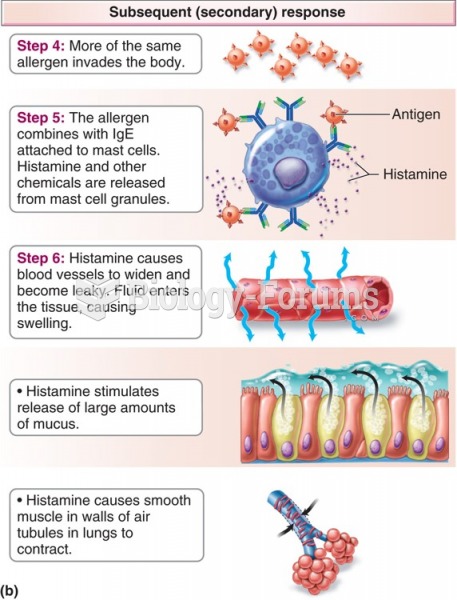This topic contains a solution. Click here to go to the answer
|
|
|
Did you know?
It is believed that humans initially contracted crabs from gorillas about 3 million years ago from either sleeping in gorilla nests or eating the apes.
Did you know?
The familiar sounds of your heart are made by the heart's valves as they open and close.
Did you know?
Anti-aging claims should not ever be believed. There is no supplement, medication, or any other substance that has been proven to slow or stop the aging process.
Did you know?
Most childhood vaccines are 90–99% effective in preventing disease. Side effects are rarely serious.
Did you know?
Carbamazepine can interfere with the results of home pregnancy tests. If you are taking carbamazepine, do not try to test for pregnancy at home.
 Two important changes occur in the upper airway in croup:The epiglottis swells, thereby occluding th
Two important changes occur in the upper airway in croup:The epiglottis swells, thereby occluding th
 An alternating pneumatic compression device squeezes the leg tissues causing blood to move toward th
An alternating pneumatic compression device squeezes the leg tissues causing blood to move toward th





